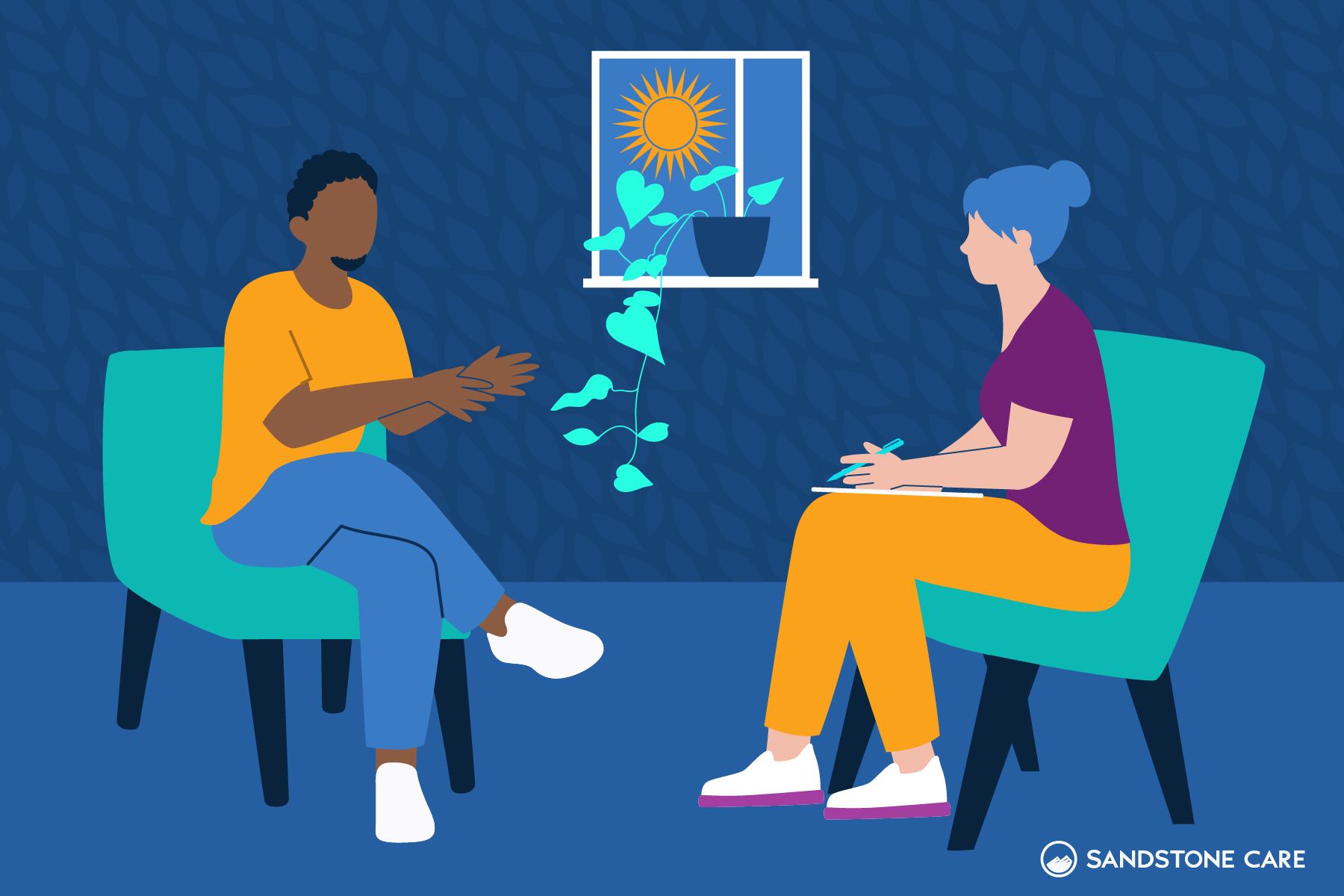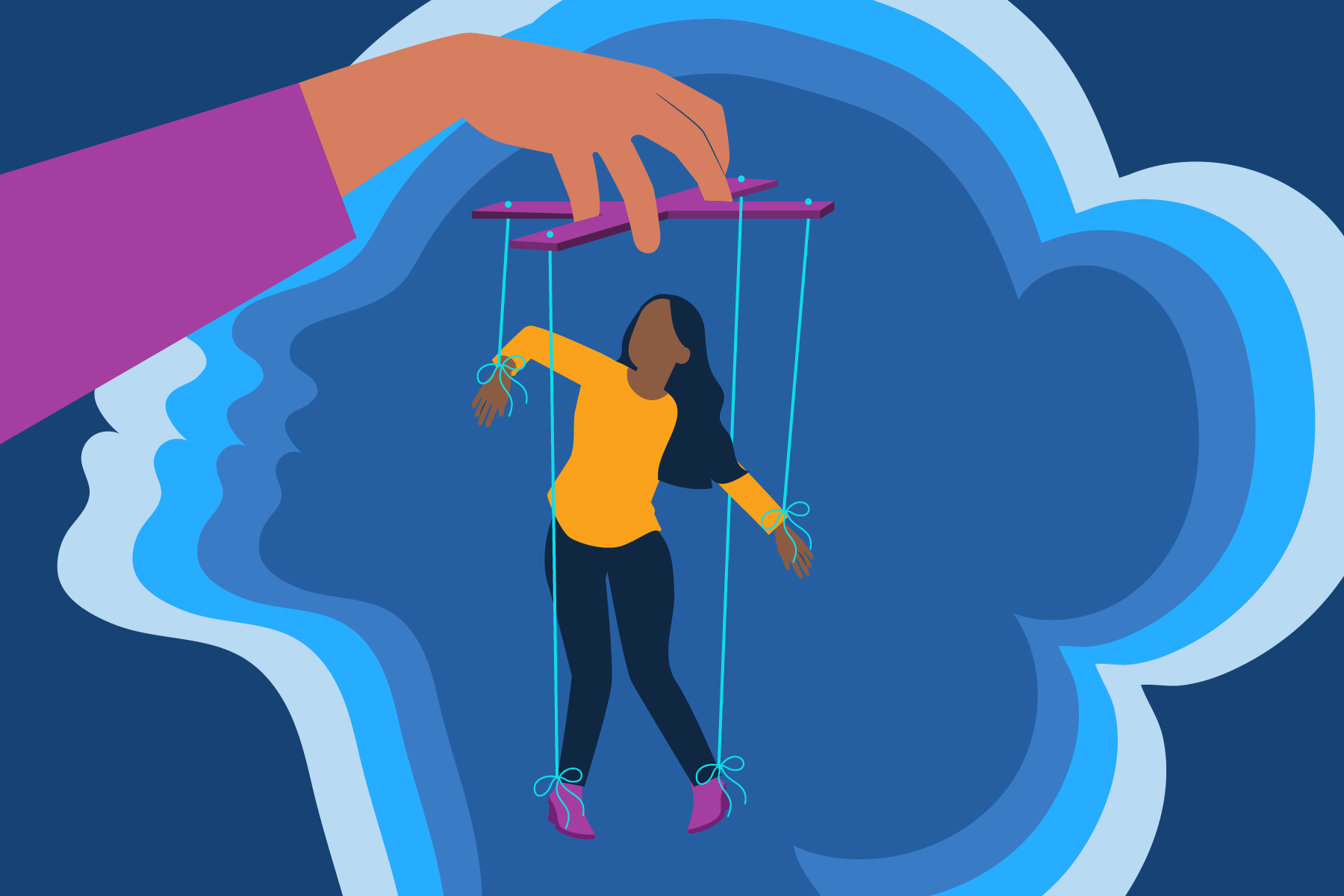Narcissistic Personality Disorder
What Is A Narcissistic Personality Disorder?
Narcissistic Personality Disorder (NPD) is characterized by grandiosity, a need for admiration, and a lack of empathy, according to the DSM-5.
Individuals with NPD often have an inflated sense of self-importance and may face challenges in relationships because of their actions. These individuals have a strong need for attention and may manipulate others in order to get it. They may also have difficulty with handling criticism or rejection.
Types of narcissistic personality disorder can include:
- Overt narcissism
An Overt narcissist is someone who has a grandiose sense of self-importance and a strong need for attention and admiration. Signs of a covert narcissist tend to include individuals who have very high opinions of themselves and may struggle with relationships because of their difficulty with empathy and their need to be constantly admired. - Covert narcissism or vulnerable narcissism
A Covert narcissist, also known as a “vulnerable narcissist,” is characterized by a shy, introverted, and hypersensitive personality. Unlike overt narcissists, who openly seek attention and admiration, people with covert narcissism may be more prone to feeling envious of others and may try to quietly undermine them in order to feel superior. - Grandiose narcissism
A Grandiose narcissist is characterized by an inflated sense of self-importance, a lack of empathy for others, and a need for admiration. Grandiose narcissists may engage in attention-seeking behavior, such as bragging about their accomplishments or seeking out opportunities to be in the spotlight. They may also have a lack of empathy for others and may be willing to manipulate or exploit others in order to achieve their own goals. - Pathological narcissism
A Pathological narcissist is characterized by a pervasive pattern of grandiosity, self-importance, and a need for admiration, as well as a lack of empathy for others. Pathological narcissism is often associated with difficulty with relationships, problems at work or in other areas of life, and mental health problems, such as depression or anxiety.
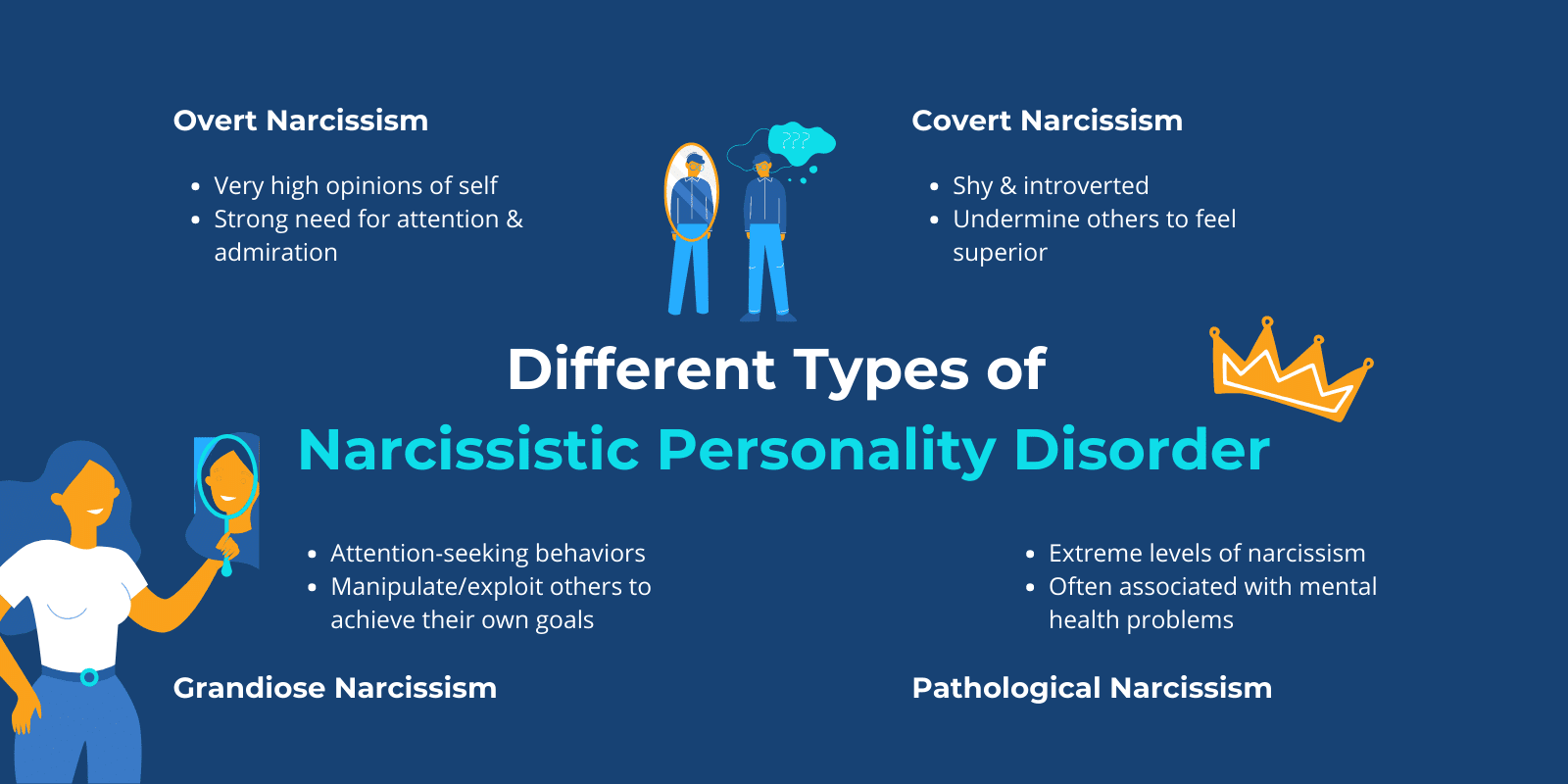
Who Is Most Likely To Be A Narcissist?
The Mayo Clinic suggests that men are more likely to be affected and it is less likely to diagnose narcissistic personality disorder in women.
They also state that NPD “often begins in the teens or early adulthood. Some children may show traits of narcissism, but this is often typical for their age and doesn’t mean they’ll go on to develop narcissistic personality disorder.”
What Are The Behaviors Of Narcissistic Personality Disorder in Teens?
NPD is categorized as a cluster B personality disorder that involves exaggerated, intense, emotional, and unpredictable behaviors.
Other cluster b personality disorders include antisocial personality disorder, borderline personality disorder, and histrionic personality disorder.
A teen with NPD acts like they are superior to others, behaves in ways that are self-centered and disregarding others, and acts in ways that bring attention to them.
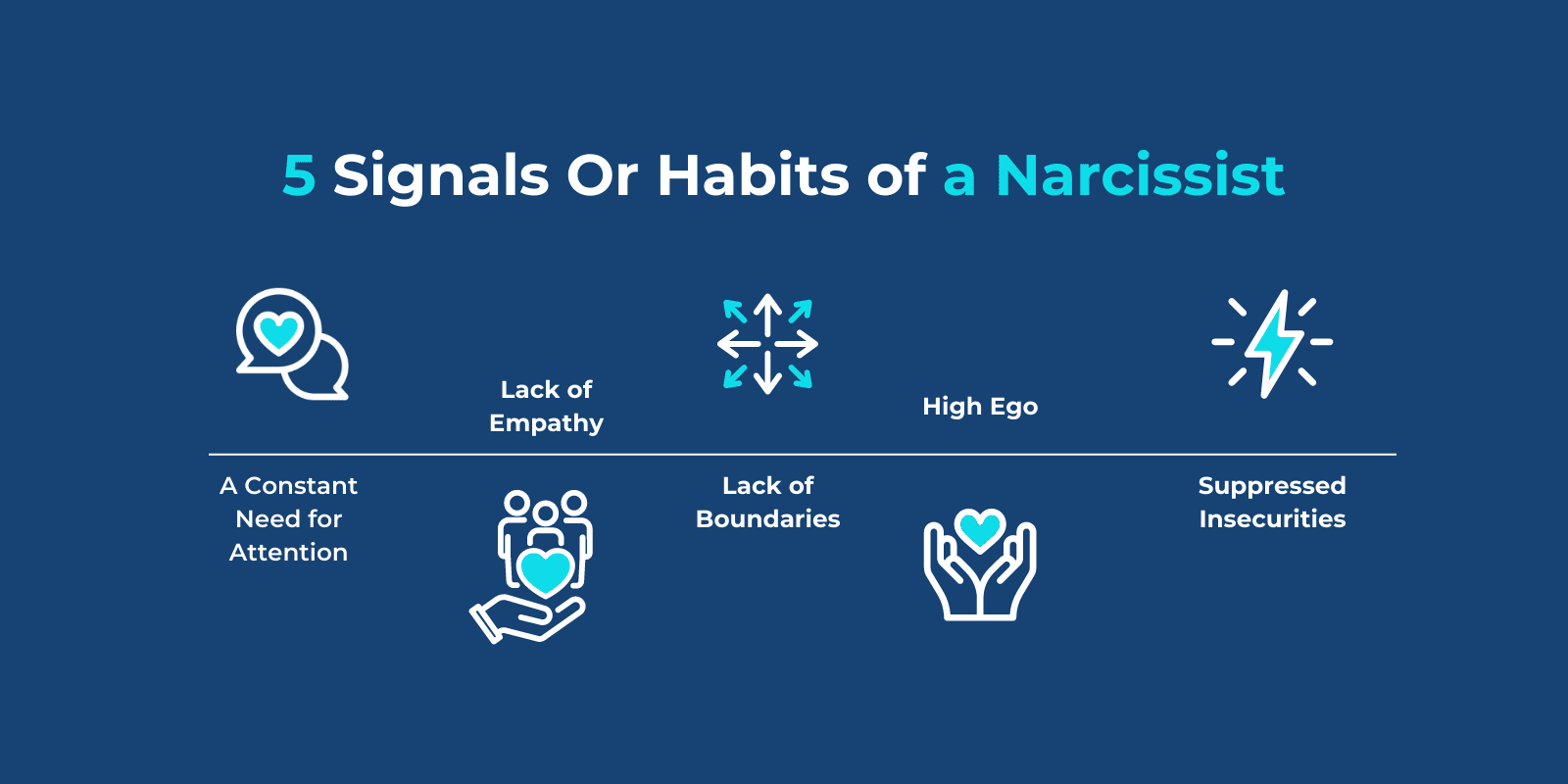
What Are The 5 Main Habits Of A Narcissist?
Common habits of a narcissistic teen include:
- A constant need for attention
- Lack of empathy
- Lack of boundaries
- High ego
- Suppressed insecurities
How Do You Know If A Narcissist Is Toxic?
Narcissists often have little regard for others and behave in ways that are self-serving. They often feel superior to others and take advantage of people.
The behaviors associated with narcissism can make it very hard for the people close to them. NPD often causes problems in relationships with loved ones.
What Damage Can A Narcissist Do To You?
A relationship with a narcissist, whether in your family, a partner, or a friend, can cause severe mental health problems and affect your well-being.
For one, narcissists often manipulate situations and other people to believe that they are in the wrong. A narcissist will often have you question yourself and blame yourself for things that went wrong when it wasn’t your fault.
A narcissist can make you feel invalidated, guilty, ignored, and insecure. A narcissist’s behaviors can hurt a person’s self-image.
In the case that a person tries to remove themselves from the unhealthy relationship with a narcissist, they will often make you feel guilty for moving on.
Having a relationship with a narcissist can also contribute to or worsen mental health conditions such as anxiety disorders and depression.
Adolescents and children who grow up around narcissists also commonly struggle with problems such as codependency in future relationships, poor boundaries, trouble expressing emotions, trust issues, low self-esteem, impacted sense of self, extreme stress, and more.
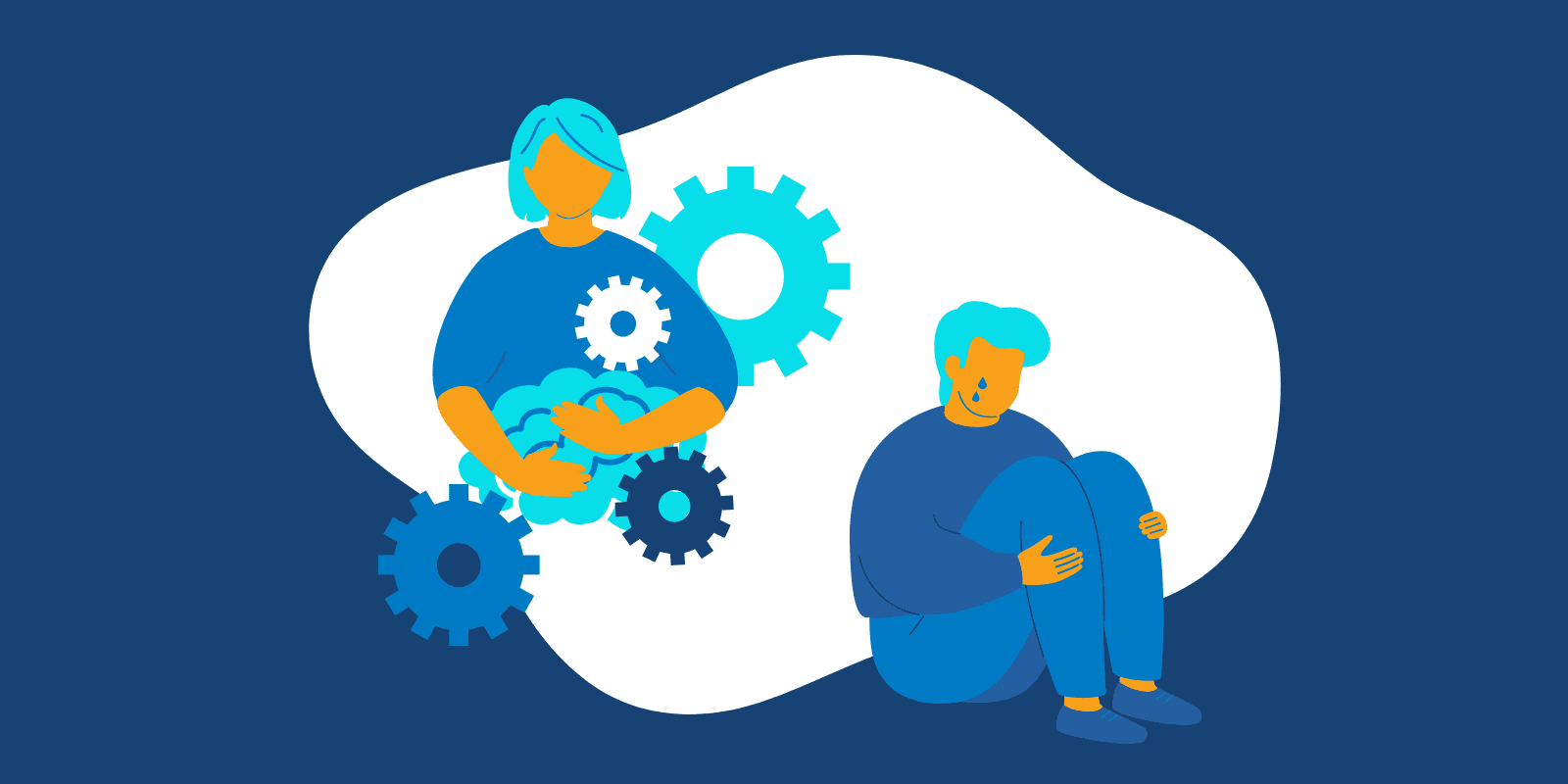
How Do Narcissists Behave With Their Families?
Some children may grow up with narcissistic parents, which can cause problems from a young age all the way through adulthood.
Behaviors of a narcissistic parent may include:
- Blaming everyone but themselves for their problems
- Trying to appear like a good parent to others or be well-liked, but the extreme opposite behind closed doors
- Acting immature and selfish
- Always needing the conversation to be about them
- Making their children feel guilty for not talking about how great of a parent they are
- Being highly opinionated and judgmental
- Forcing their children to do stuff that they want, without regard to what their children want
- Taking advantage of their children and others
- Failing to provide emotional support
- Becoming angry when their family members tell them how they feel
- Always want control over everyone and get mad if they feel like they are losing control
- Being absent in their children’s lives
Narcissistic Personality Disorder Causes
What Is The Root Cause Of Narcissism in Teens?
The causes of narcissistic personality disorder are unknown.
However, early life experiences may play a role, such as parenting styles that are insensitive, overprotective, or neglectful.
It is possible that genetic factors may contribute as well.


“It’s been my professional experience that NPD is a direct result of either abusive or less-than-perfect parenting and is a child’s only defense to counter the mistreatment.”
– Kenny Weiss, Emotional Mastery Coach
The Greatness University
What Triggers Someone With NPD?
Certain situations may trigger an NPD episode and cause a teenager to become angry. This can include:
- Receiving criticism
- Feeling that they are losing control over a person
- Being held accountable for their actions
- Getting caught lying
- Not having the attention they want
- Not receiving special treatment
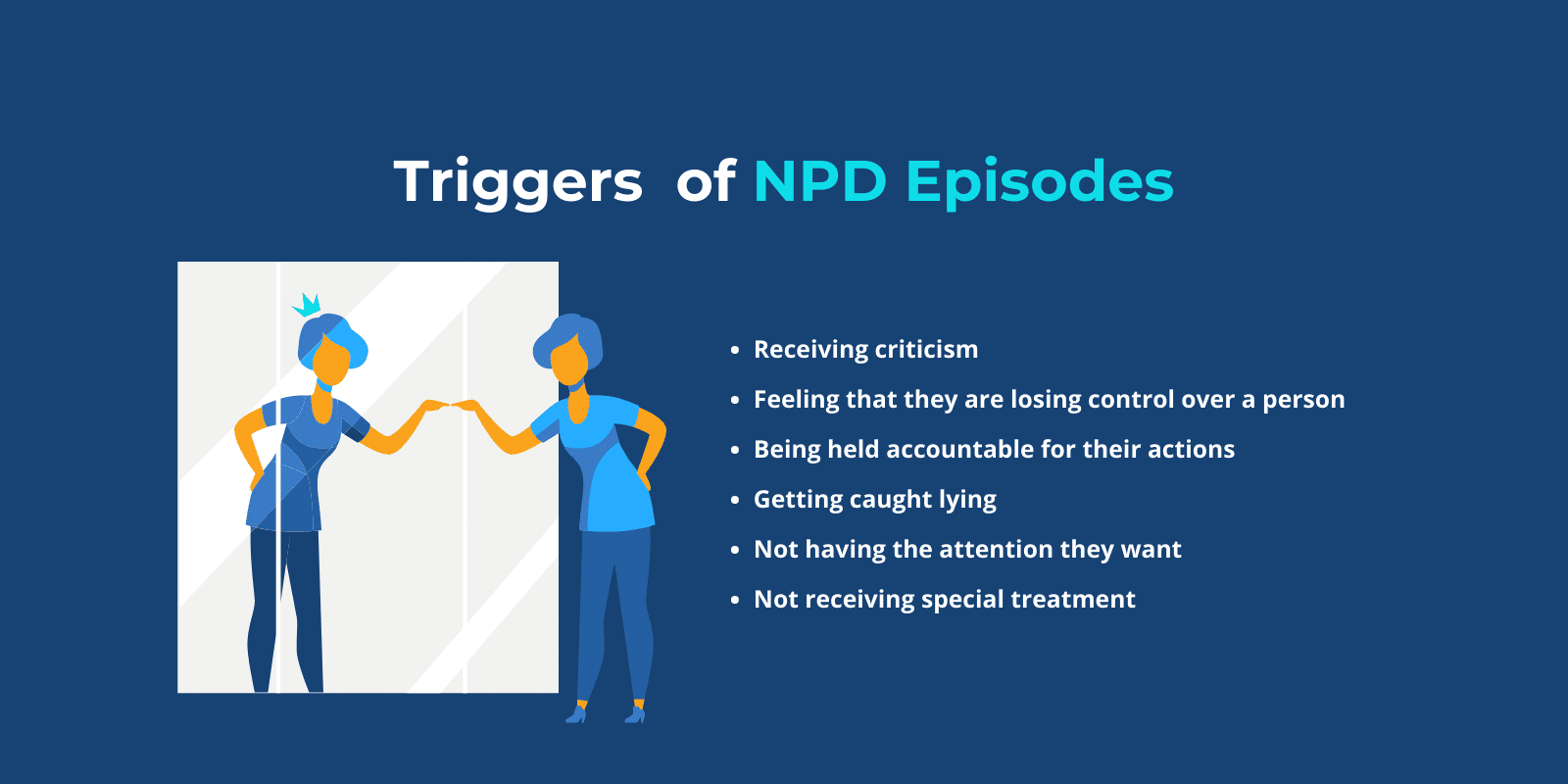
What Kind Of Childhood Trauma Causes Narcissism?
Childhood experiences and trauma that may be risk factors for narcissism include:
- Excessive judgment or praise
- Neglect
- Overprotective parenting
- Physical, verbal, emotional, or sexual abuse
Is NPD A Coping Mechanism?
NPD is commonly an external coping mechanism for feelings of low self-worth and low self-esteem.

Narcissistic Personality Disorder Symptoms
How Can You Tell If A Person Is Narcissistic?
Narcissism can manifest itself differently in each individual.
A person who is narcissistic will believe that they are superior to you. This will cause them to act in ways that take advantage of others and treat them as inferior.
Their belief of superiority can reflect itself in how they speak to you, how they react to problems, and how they act on a daily basis.
Narcissists will often feel that they have to be the best, that they are always right, and will want everything done in their way so they can feel that they are in control.
Some narcissists may feel superior by being the most hurt, upset, or injured so that others are concerned for them.
A narcissist will always need attention, praise, admiration, or even pity from others.
What Are Some Warning Signs Of Narcissism in Teens?
While it may be normal for teenagers who are still in their developmental stages to show self-centered or narcissistic tendencies like self-importance or entitlement, an individual with teenage narcissistic personality disorder will behave in ways that interfere with their personal relationships and day-to-day life.
Signs and symptoms of NPD in teens may include:
- Adverse reactions to criticism, such as anger or rage
- Taking advantage of others
- Grandiose sense of self-importance
- Preoccupation with fantasies regarding success, power, or beauty
- Need for constant and excessive admiration and attention
- Lack of regard for others’ feelings and the needs of others
- Exaggerated achievements and talents
Traits of a Narcissist

What Are The Top 10 Narcissistic Traits?
Narcissistic personality traits can include:
- Grandiosity and self-importance
- Fantasies of perfection
- Feeling of superiority
- Sense of uniqueness
- Need for attention and validation
- Sense of entitlement
- Tendency to manipulate and exploit
- Jealousy and envy
- Arrogance
- Distrust
What Does A Narcissist Do For Attention?
One of the main signs of a narcissist is their need for constant and excessive attention.
This causes them to constantly engage in attention-seeking behaviors.
Narcissistic people require others around them to praise them for their achievements and need to be seen as powerful or “the best.”

They may do so by claiming to be an expert and keeping the conversation focused on themselves.
A narcissist may also boast about people they know or things they have or have done to get others to like them. Because they believe they are superior to others, they may expect special treatment.
Sometimes, a narcissist will take pride in achieving a level of infamy. They may feel powerful from being disliked and constantly causing conflict.
How Do Narcissists Treat Their Partners?
A narcissistic relationship can be extremely unhealthy and take a toll on others’ mental health and well-being.
A narcissist will always make their partner feel that they are in the wrong and always think of themselves as right.
They commonly expect their partners to show excessive admiration for them and may use their partners to feel more powerful.
Narcissistic teens often emotionally manipulate their partners to serve themselves.
If a narcissist believes that they are losing control of their partner or that things aren’t going their way, they may resort to very hateful behaviors.
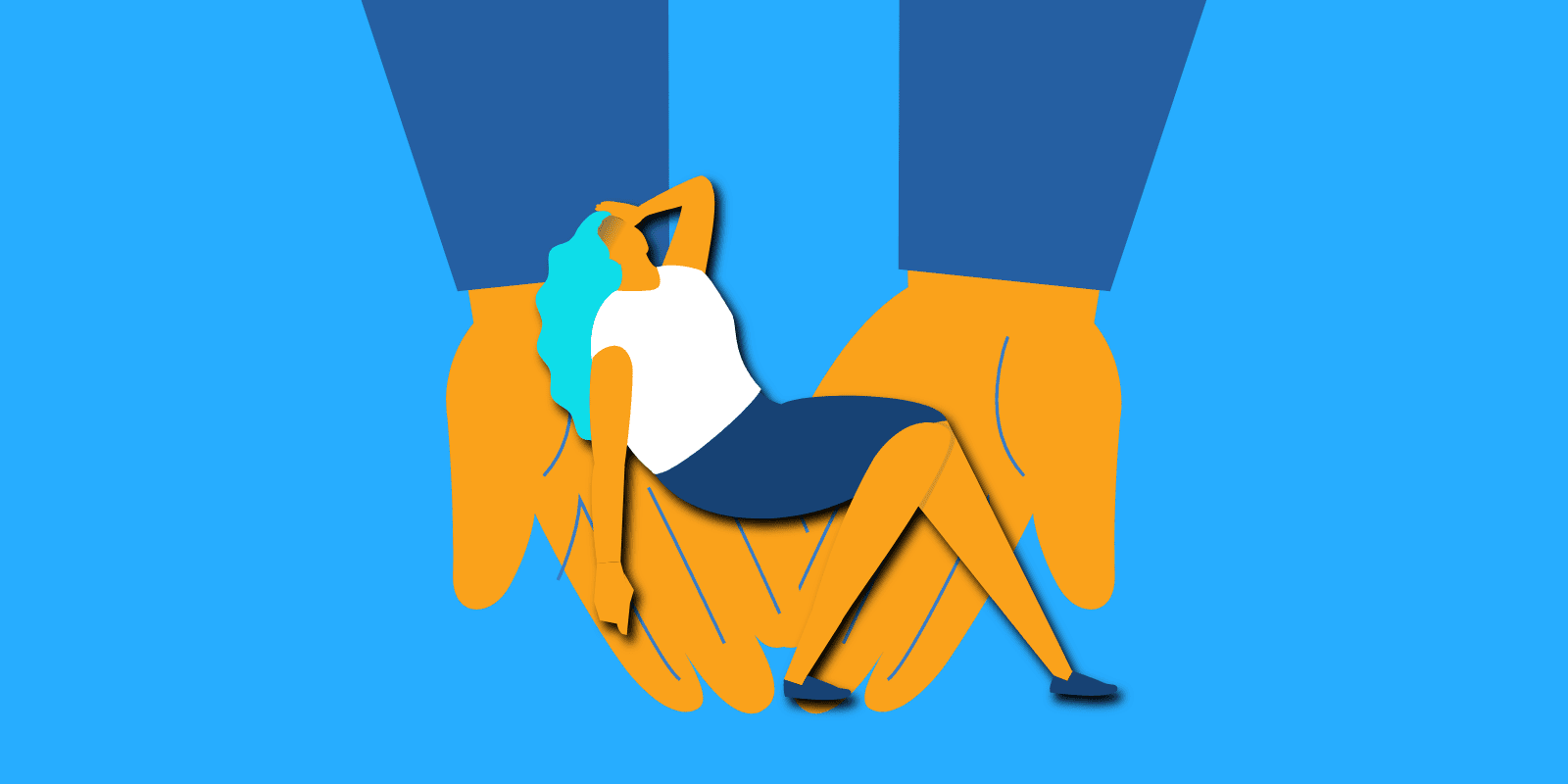
What Is The Most Important Thing To A Narcissist?
As listed by the Diagnostic and Statistical Manual of Mental Disorders, the main characteristics of a narcissist involve grandiosity and a need for admiration.
One of the most important things for a narcissist is to feel that they are superior, that they are better than everyone else, and that they are in control over everyone else.
They need admiration from others to reassure them of this; they need to feel good about themselves without regard for the feelings of others.
Do Narcissists Apologize?
A narcissistic person will be unlikely to apologize.
If they do, it is often to manipulate the situation and serve themselves in the end. They may apologize as a way to get what they want, control others, or make themselves look better.
How Does A Narcissist React When They Can’t Control You?
One of the major things a narcissist craves is control.
When they feel that they have lost control over you, they may feel threatened, intimidated, and angry.
They may react with defensiveness and lie to make themselves look better.
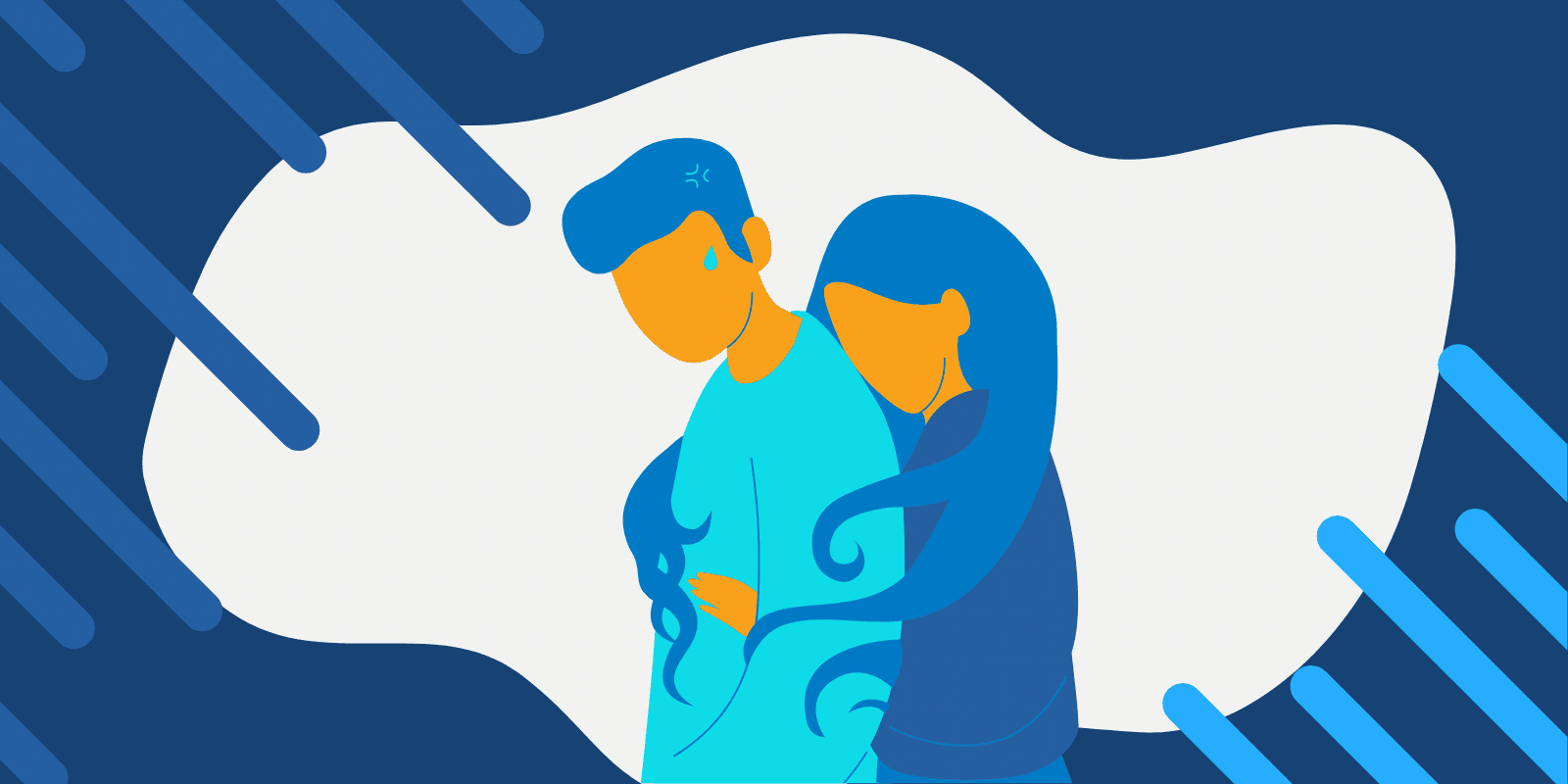
How To Deal With A Narcissist
How Do You Stand Up To A Narcissist?
To stand up to a narcissist, you should educate yourself about NPD so you can have a better understanding of why they do the things they do and learn about productive ways to handle certain situations.
It is important to set your own boundaries and speak up about them. When communicating, it is important to try to stay calm and clear about your message to avoid further conflict.
Often, a narcissistic person is trying to get a reaction out of you. Engaging in an unhealthy conversation often makes matters worse and is counterproductive.
The best thing to do is be clear about what is okay and not okay with you, and if they do not respect that, then both parties may need to take space.
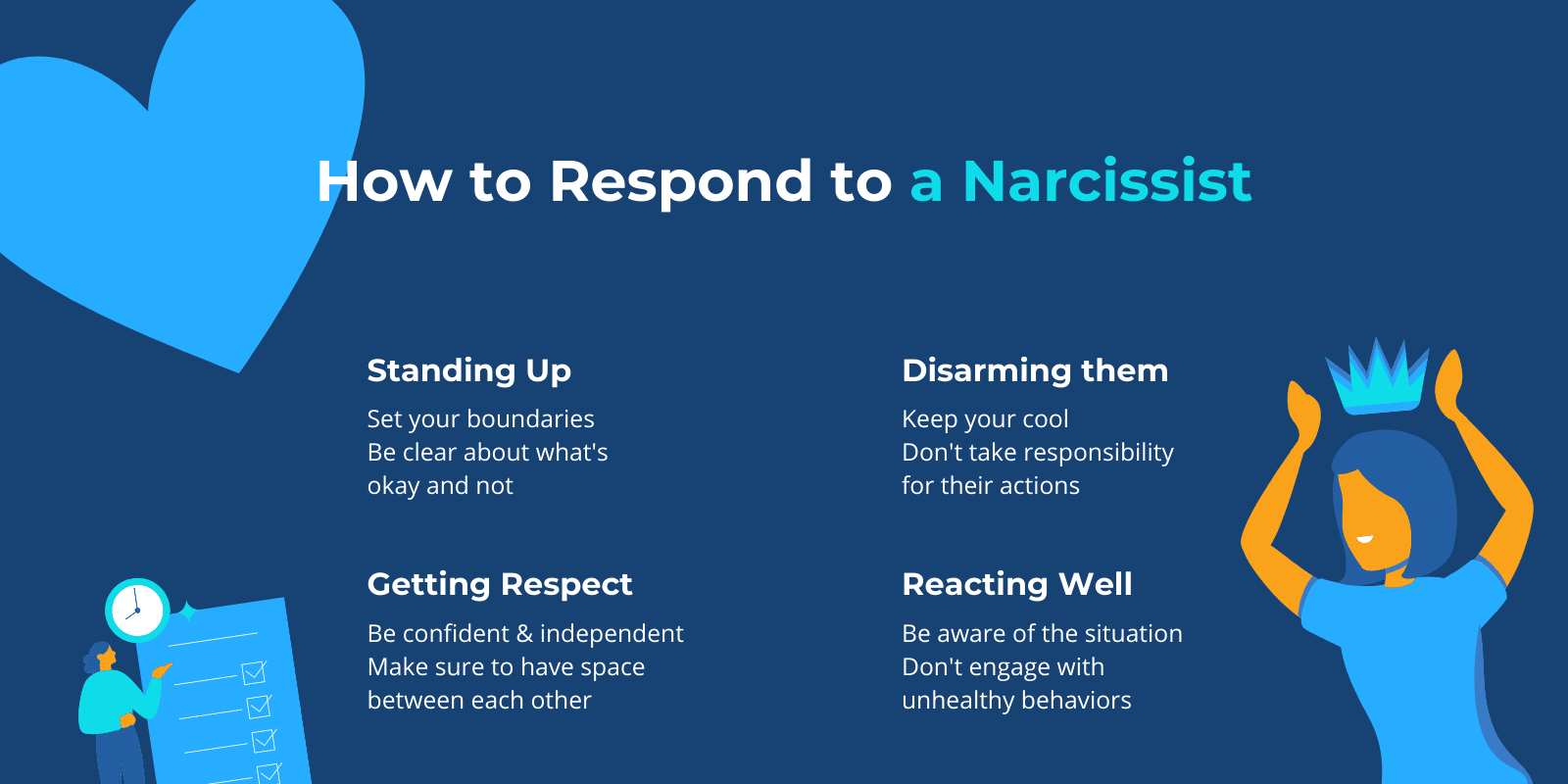
How Do You Get A Narcissist To Respect You?
A big part of getting a narcissist to respect you is by setting boundaries and communicating them.
There are ways you can respectfully tell a person that you will not accept the way they are talking to you. Being clear about what you are okay with and not okay with can show the person what you will tolerate.
Respecting yourself is also a big part of gaining respect. Be confident and independent, and assure yourself that you know what is best for you.
You can also let a person with NPD know that you understand them, that you hear them, or that you accept that you both have different opinions. Sometimes they just need to say what they have to and want you to listen.
Being patient and understanding can be hard, and sometimes the best thing for everyone is to have some space.
What To Say To Disarm A Narcissist?
Communicating with a narcissist can become very difficult as, in their eyes, it is not possible for them to be wrong, and they will continue to try to emotionally and verbally manipulate others.

Some things you can say to disarm a narcissist can include:
- “I’m sorry that you feel that way”
- “I am not going to engage in this conversation because I don’t like how you’re speaking to me”
- “I understand”
- “It will be okay”
- “I can’t control your feelings about me”
- “I am not responsible for your anger”
- “We can have different opinions”
- “I see what you are saying”
- “I am not willing to be insulted or yelled at”
- “I accept that that is how you feel”
What Should You Not Say To A Narcissist?
Some things to not say to a narcissist can include:
- “It’s not about you”
- “Let it go”
- “It’s not a competition”
- “Stop playing the victim”
While these phrases may be true, a narcissist does not think they are wrong and is usually caught up in self-absorbed thoughts that saying these things will not make any difference and will usually only make them madder.

How Do You React To A Narcissist?
One of the first steps to dealing with a narcissist is being aware of the situation. Understand that the behavior of a narcissist is not healthy and that they are struggling with a disorder that should be treated.
If a narcissist is trying to put the blame on you, make you feel guilty, and make you feel like you’re crazy, you can try to ignore these comments and focus on building high self-esteem and confidence.
It is also important to set boundaries. In some situations, you will have to reinforce these boundaries and make it clear what the outcome will be if they are crossed.
Often, a narcissist is trying to get a reaction out of you, so it can be helpful not to engage with their behavior.
Narcissistic Personality Disorder Treatment
Can Narcissistic Personality Be Treated?
There is no cure for narcissistic personality disorder. However, treatment can help individuals manage their symptoms and live happier, more sustainable life.
If you believe you or a loved one may be struggling with NPD, reach out for help from a healthcare provider or mental health professional.

Can Narcissistic Behavior Be Fixed?
Narcissistic behavior can change if a person truly wants to change.
Through therapy, a person with NPD can learn about the connection between their thoughts, feelings, and behaviors. Certain types of talk therapy can teach them how to restructure their beliefs to better reflect reality and help them unlearn unhealthy behaviors.
Can A Narcissist Heal?
Yes, but it is important for them to want to heal themselves.
What Is The Best Treatment For Narcissistic Personality Disorder?
A healthcare provider may diagnose a person with narcissistic personality disorder based on a psychological evaluation and if they meet the diagnostic criteria.
The best treatment for narcissistic personality disorder typically involves some form of psychotherapy or talk therapy.
Psychotherapies, such as cognitive behavioral therapy (CBT), can help a person understand unhealthy feelings and thought processes and how they contribute to destructive behaviors.
Through therapy, a person can learn how to better understand the connection between their thoughts and behaviors and learn healthy coping mechanisms.
Family therapy can also be a very important part of the treatment of narcissistic personality disorder because it affects both the individual and the people around them.
Support groups may also be helpful for those with NPD to help build a sense of community and relate and learn from others’ experiences.
Oftentimes, NPD co-occurs with other mental health and psychiatric disorders. Because of this, it is important to address each condition and treat the symptoms of each disorder.
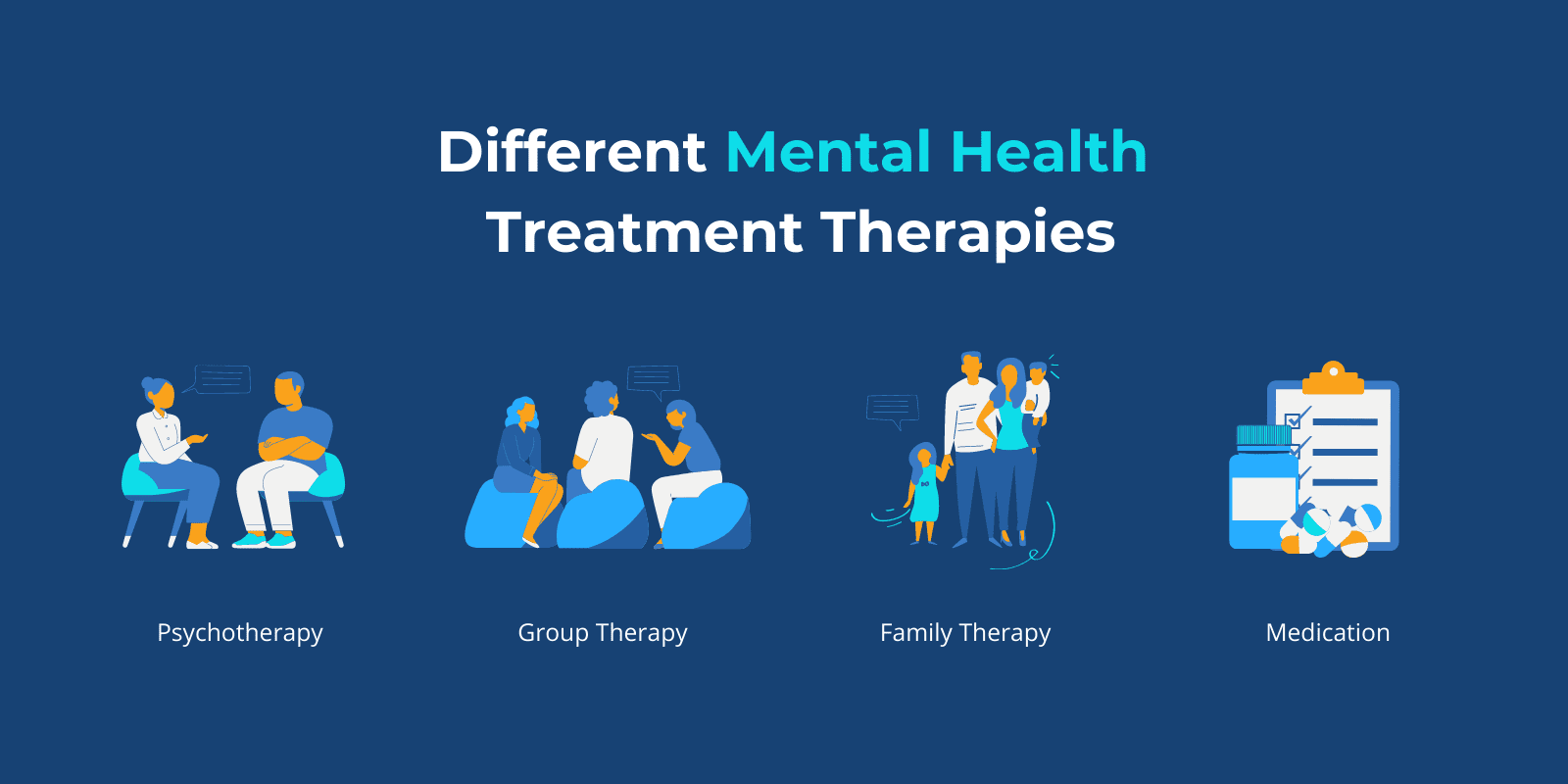
FAQ
You have questions. We have answers.
Our goal is to provide the most helpful information. Please reach out to us if you have any additional questions. We are here to help in any way we can.
Traits of malignant narcissism are characterized by both narcissistic personality traits and a complete lack of empathy.
These individuals are often aggressive, abusive, and exploitative, and they may engage in behaviors such as manipulation, coercion, and even physical violence in order to achieve their own goals.
They may also exhibit sadistic tendencies, taking pleasure in causing harm to others. It is important to note that the term “malignant narcissist” is not a formal diagnosis and is not recognized by the psychiatric community as a legitimate diagnosis.
Narcissists can still have good qualities and be good people at times.
However, sometimes these traits are only an act out of an effort to appear as a better person.
What usually scares a narcissist is the thought of being alone, losing control, or being powerless.
Narcissists are capable of loving; however, it often times comes with certain conditions.
Although it can be said that sometimes narcissists really care deep down, however, they are unable to show this as it contradicts their beliefs.
According to Restorative Neurology and Neuroscience, psychopathy is a neuropsychiatric disorder that is characterized by deficient emotional responses, lack of empathy, and lack of behavior control.
Psychopaths are at increased risk for antisocial behavior and criminal behavior.
One of the differences between a narcissist and a psychopath is that narcissist may feel guilt or shame after the way they act, whereas a psychopath often shows little remorse.
However, psychopathic and narcissistic traits can be similar.
A narcissist will make it a point to appear likable and friendly at first impression.
Over the course of interaction, one of their goals may be to have you admire them, so they will do almost anything to make it seem that they are on a pedestal and that they have achieved so much.
One of the main things a narcissist wants to feel is important. To feel that way, they can manipulate others into doing things that they want.
Additionally, some people may be attracted to the extreme confidence that a narcissist may have. Narcissists often believe that they are attractive, and some people like that.


Let’s take the next steps together
Narcissistic personality disorder is characterized by grandiosity, a need for attention, and a lack of empathy. Sandstone Care is here to support teens and young adults with mental health and substance use disorders.



